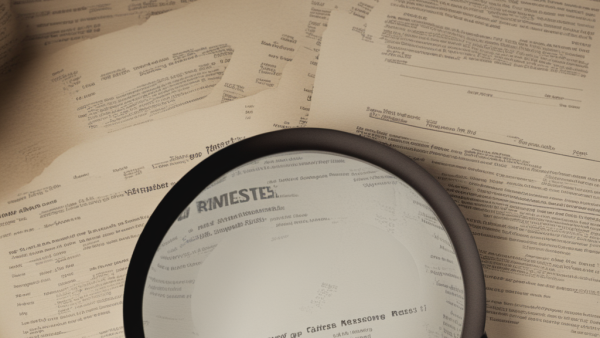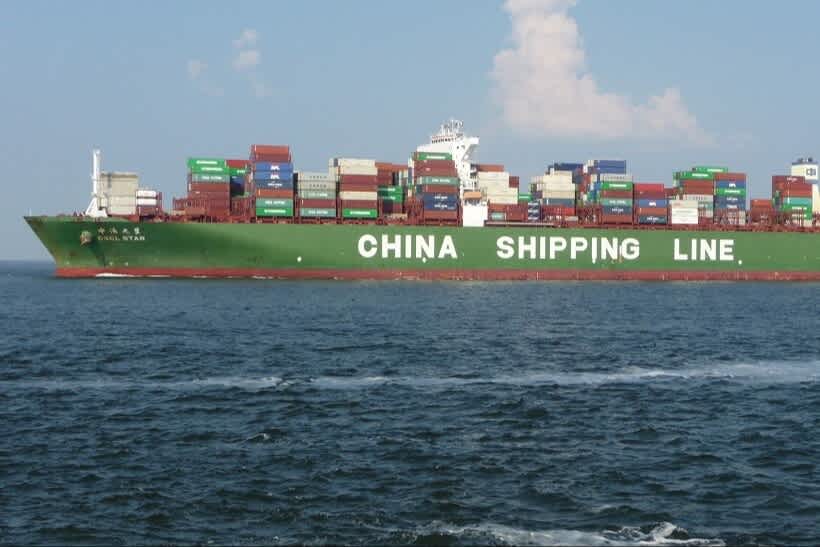
by Sam Franklin | August 06, 2022 | 13 min read
Importing from China to the UK – The full customs clearance procedure
Get fundedLast updated: September 02, 2022
If you’re a UK eCommerce merchant, the chances are you have looked at importing products, parts, or tools from China as part of your business activities. According to the IMF, China was the second largest economy in the world in 2021. This UK parliamentary report states that China is the UK’s third largest source of imports and accounts for over 10% of UK imports.
This article looks at the important area of customs clearance procedure – necessary whenever goods cross a border. If you’re a UK eCommerce merchant, you may use a customs brokerage agency or freight forwarder that can manage many of the customs procedures for you. However, it’s still handy to know how the process works so that you have peace of mind that your shipments arrive on time as expected.
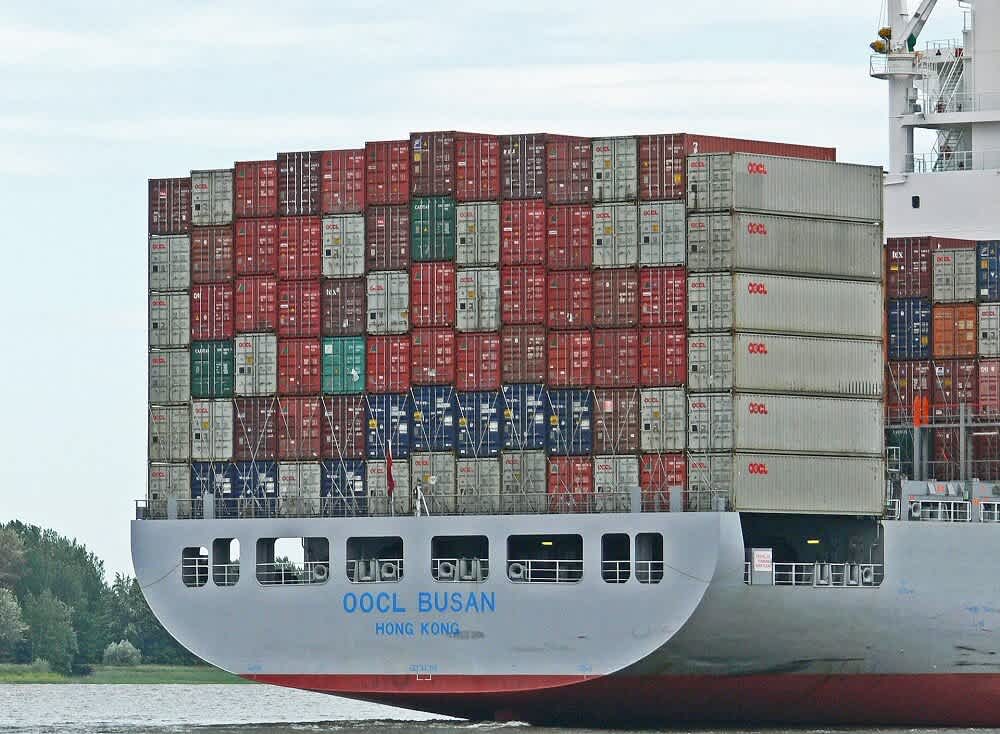
Table of contents
- What is customs clearance?
- The logistics of shipping from China to the UK
- Customs clearance once your goods arrive from China
- What documentation do you need?
- How to pay the charges needed for customs clearance
What is customs clearance?
Customs clearance is the process that must be followed when you are moving goods across borders. It’s a vital part of any eCommerce merchant’s activities from both an importer and exporter standpoint, so it’s important to understand how customs authorities work.
If you export goods to China, you will find that Chinese customs procedures are strict and that certain product types are highly regulated. The China Inspection and Quarantine (CIQ) handles all international shipments for inspection before they move on to the customs officials. The UK government provides a useful guide for exporting that covers the China customs clearance procedure, how the China customs authorities work, and documentation requirements such as the China customs declaration form. You can view the guide here.
If you’re a UK-based importer, Her Majesty’s Revenue and Customs is the authority that handles customs clearance. It’s an important activity as it gives visibility into what goods are coming into the country and ensures that the correct customs duties and taxes are being paid.
An eCommerce importer will need to submit the right documentation, pay all customs duties, Value Added Tax (VAT), and anything else required before goods are able to continue their journey having arrived in the UK.
You can visit the official gov.uk website to get further information on customs clearance, the rules, regulations, customs duties, and details of your local office responsible for it.
For a more general overview of UK customs clearance, you can check out a recent article on the Bloom blog, “Getting customs clearance - The UK eCommerce merchant's guide”.
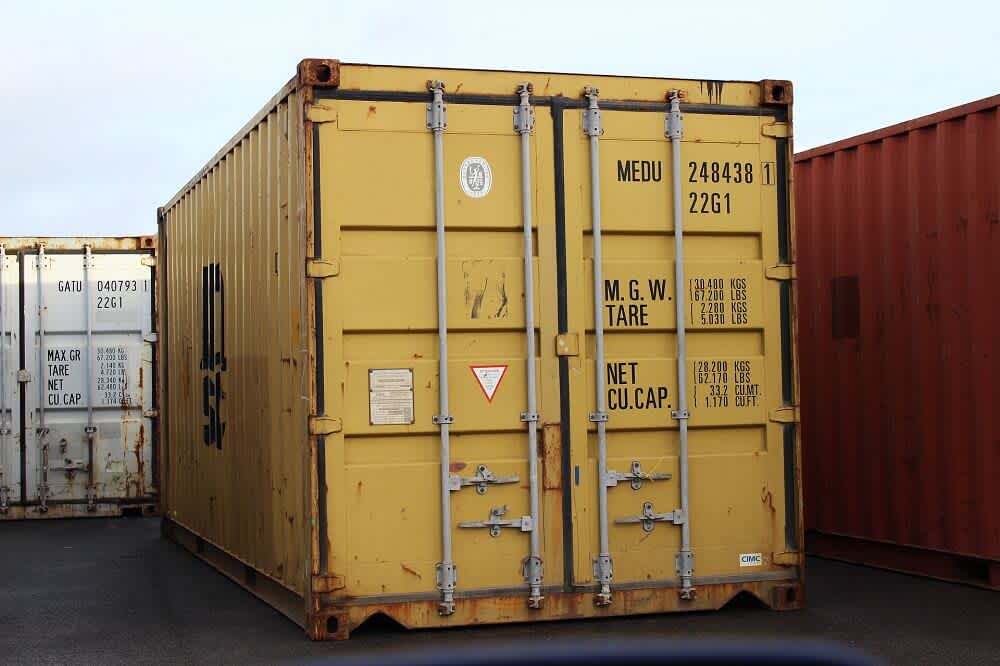
The logistics of shipping from China to the UK
China has established itself as the world’s largest exporter of goods thanks to a competitive ability to build and manufacture quantities of goods at scale and at a low cost. There are also some major eCommerce platforms that you may use for sourcing products, such as Alibaba, Aliexpress, and Banggood.
Knowing the most effective way to approach customs processes with respect to importing from mainland China to the UK can contribute a competitive advantage to your business in terms of speed, lower costs, and customer satisfaction. If you are looking to ship regularly from the country, you will most probably want to visit your suppliers and get a feel for how things work on the ground for importing and exporting.
Several options are open to you as an importer from China, be it by air, sea, road, or rail. As mainland China is 6,756 miles away from the UK, your choice of transportation is a critical decision you must evaluate. Here we will look briefly at some of those options.
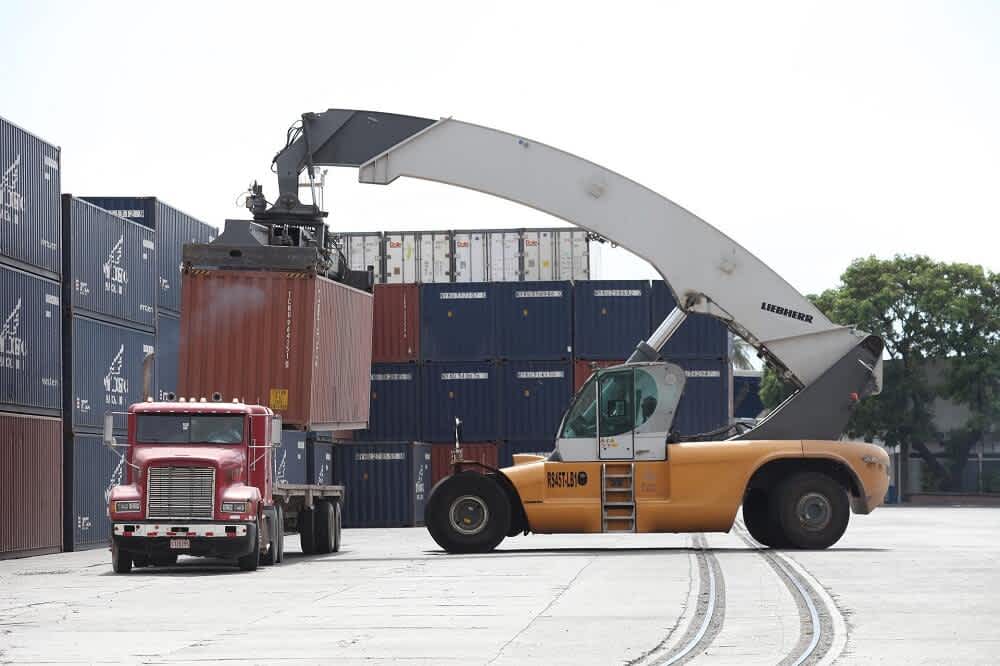
Importing from China by sea, air, rail, and road
If you’re moving large amounts of goods in terms of volume, then sea freight is your most likely transportation choice. Shipping containers will take longer to arrive at UK ports than by air, so you will want to make sure things are not slowed any further by customs formalities. If any consignment within a container is delayed at customs, then the whole container load may be held back, disrupting your operational plans.
The major Chinese seaports include Port of Shanghai, Port of Shenzhen, Port of Ningbo-Zhoushan, Port of Guangzhou (Nansha), and Qingdao Port. Sea freight will arrive at the main UK container ports of Felixstowe Port, Southampton Port, London Gateway Port, Liverpool Port, and Port of Immingham.
If you’re working to tighter shipping deadlines, shipping by air freight is a faster mode of transportation, although it is more costly. It will also be an attractive option if you’re importing valuable goods, probably with lower weights.
Some of the main airports your goods may be passing through in China include Beijing Airport, Hong Kong Airport, Dalian Airport, Shanghai Airport, Chengdu Airport, Guangzhou Airport, and Shenzhen Airport. In the UK, your goods will arrive at customs at Heathrow International Airport, East Midlands International, London Stansted Airport, or Manchester Airport.
Where cost is a key factor in your choice of transportation, then rail might be your solution of choice. This journey by rail will take around 18 days from station to station, so you will probably want to be confident your goods will get quickly through customs once in the UK. The journey from China passes through a handful of Asian and European countries before the final leg of the journey through the Eurotunnel between France and the UK.
Road freight will be the most economical way of importing goods from China to the UK and is a good option if time really is not an issue, or you can order the required goods well in advance of when you require them at your disposal in the UK. You can expect to wait between 2 to 3 weeks for your goods to arrive by rail, assuming a prompt release by customs.
Which Chinese public holidays should you be aware of?
To avoid delays when importing from China, you should avoid shipping during public holidays:
Chinese New Year - A 15-day festival that can occur on any date between the 21st of January and the 20th of February. The majority of workers in industrial cities take time off to travel to their home towns and villages. Manufacturing facilities are closed, and terminals are crowded during this time.
Qingming - This happens 15 days after the Spring Equinox (around the first week of April).
Labour Day - In China, Labour Day holiday is from April 30th to May 4th.
Dragon Boat Festival - This falls on the fifth day of the fifth month of the Chinese lunar calendar (May or June).
Mid-Autumn Festival - On the 15th day of the eighth month of the Chinese lunar calendar (September or early October).
National Holiday - This falls on October 1st, but many workers take the week off around this date, many factories are closed, shipping prices shoot up, and you may face delays.
Customs clearance once your goods arrive from China
If you’re shipping goods from China to the UK, you may decide to outsource many of the tasks that are involved in customs clearance to a specialist customs agent or use freight forwarding services as part of the logistics services offered by some companies. You should consider if you have the internal resources to handle all the different documentation requirements, customs formalities, checks, and payments of import taxes and customs duties or if your time is better spent on other aspects of your business.
Compared to the China customs authorities, shipping from China shouldn’t be vastly different when it comes to customs clearance than from any other country. However, there are some country-specific things to be aware of.
If you prefer to handle the customs process in-house, some of the key things you must do are to get the commodity codes, determine the value of the goods, calculate the customs duties, and decide if a licence or certificate is needed. The type of documentation that you need varies by country. In general, you will need to provide:
Export documentation – purchase order, commercial invoice, packing list, air waybill or bill of lading, and a certification of origin.
Import documentation – purchase order, supplier sales invoice, air waybill or bill of lading, packing list, and a certification of origin.
You can view more details on all the steps required here.
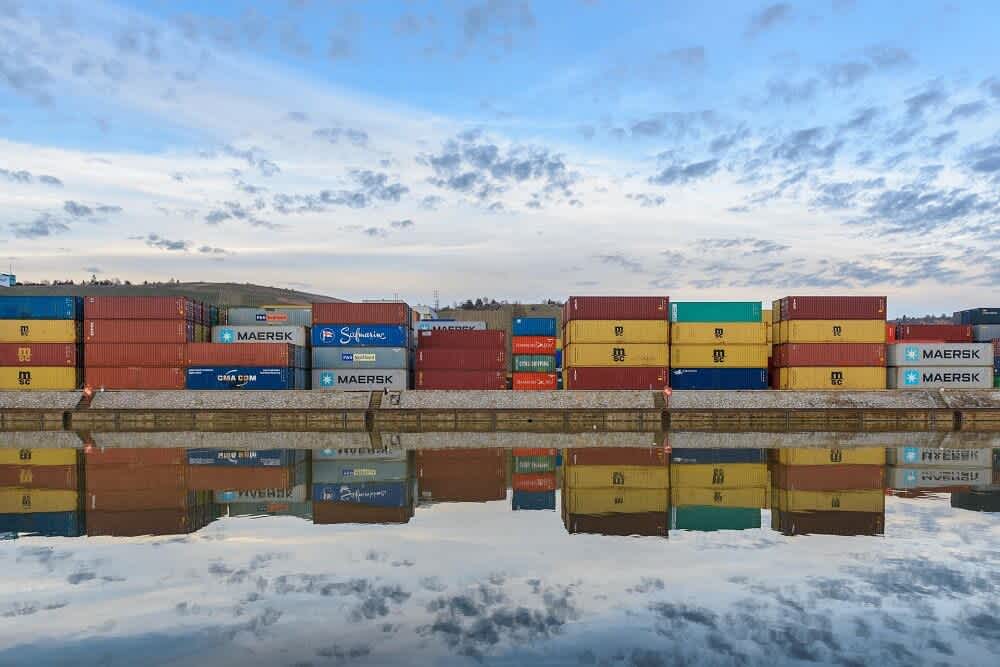
Do you need customs brokers or freight forwarders to ship from China?
Dealing with customs regulations and customs documentation for the shipping process from China can be complex. For many UK-based eCommerce companies, using customs brokers or freight forwarders will be advisable to avoid hiccups. However, this is not a legal requirement, so you can choose to manage the process yourself if you prefer.
It can be daunting for business owners who are new to importing from China. You will need to consider the customs requirements of China customs officials and the UK customs authorities. Using freight forwarding services or customs brokerage services means you get experts in the area to assist you and act as a handy conduit between the UK customs offices and you as the merchant importer. They can ensure you pay the right amount of customs duty and tax and apply for any reduction your shipment is eligible for.
How long does UK customs clearance take?
Considering that importing goods from China may take some time because of the distance to travel, most eCommerce merchants that operate on tight timescales will want to accurately measure how long customs clearance will take. The time is dependent on the specific shipment entering the country.
Of the things that importers can control, the most important is to ensure that you have all the correct documentation in place and have paid all the necessary taxes and customs duties. Beyond that, things will take longer should your shipment need any further documents when they arrive from China or if it’s decided that a physical inspection is required by customs officers.
Overall, UK customs aren’t as strict as their Chinese customs equivalents, so the customs clearance needed should be delivered quickly when no problems arise.
What documentation do you need?
Let’s now look at the documentation you will need for trouble-free customs clearance of your shipment from China.
An EORI number is needed by all individuals or businesses importing into the UK. You can get your EORI number by registering online with the UK tax authorities.
Commodity codes are used by customs authorities to identify the goods you’re bringing into the country, and you will need those too. The codes ensure that the correct import taxes and customs duties are paid and that legal and safety regulations are followed. The Trade Tariff look-up service on the gov.uk website will help you find the relevant commodity codes and custom duties, and VAT rates for your goods.
Here is a list of the essential documents you need for your shipment:
Commercial invoice - This serves as proof of sale as a legal document between the buyer and seller.
Packing list - Gives a description of goods, cargo dimensions, total volume, packing details, and information about the shipper and the consignee.
Country of origin certificate - To confirm where a product was manufactured, other product details, and the name of the destination port.
Bill of Lading - This document details the type, quantity, and destination of goods being shipped and acts as a contract between a freight carrier and the shipper.
Material Safety Data Sheet (MSDS) - This is prepared by the manufacturer to provide details about the physical, chemical, and hazardous characteristics of goods.
Done correctly, these documents should provide all the information needed at customs. If anything is missing, your shipment will be delayed while you provide more details to customs officers.
Do you need any other documents?
Depending on the commodity code of the goods you are bringing in from China, you may need some added documentation. This could be, for example, health certificates for foodstuffs or plants.
Other goods will need an import licence. This is normally the case in areas where the UK government wants to limit the number of goods entering or leaving a country in any set period. These licences are distributed by the relevant government department involved in the goods you’re importing.
When importing from China to the UK, you must have a Chinese Customs Registration (CR) number and a Power of Attorney (POA) number for goods that are non-documented, regardless of their declared customs value. Certain categories of goods or their packaging must also have the UK Conformity Assessed (UKCA) mark from January 1, 2021. Products that require this include toys, measurement instruments, radio equipment, machinery, and more.
However, remember that your supplier in China may not always be aware of the specific labelling requirements applicable to the imported product. Therefore you must tell your supplier about the affixing position, dimensions, and graphic files for each product.
How to pay the charges needed for customs clearance
In this section, we look at some of the import-related payments and customs duties you need to take care of as they relate to the customs clearance process.
There are two main payments to make as an importer of goods. Customs duty tax is levied by a country on all imported goods. It calculates a percentage of a product’s value using the commodity code and associated duty rating. The second is VAT which is generally charged on the amount paid for the goods, the shipping costs, and the duty. In the UK, the VAT rate is normally 20%.
When are import duties and taxes not levied?
You can import certain goods into the UK without paying import duties and VAT where certain conditions are met, such as:
Bonded warehousing
Importing samples that have no commercial use past testing.
Transit movements where the destination is not the UK.
Inward processing relief, where the goods are due to be re-exported.
Returned goods, where the goods were initially exported from the UK.
What other customs charges are there?
Depending on your specific case, there are other costs related to the customs process of importing to the UK. There are potential additional costs when a shipment is held and stored by customs for X-Rays used to ascertain the safety and compliance with UK standards. There is ‘anti-dumping’, a duty on some products to protect UK manufacturing from low-cost external competitors.
How can you pay the customs charges?
The customs duties and taxes payments can be made by you directly, your customs agent, or freight forwarder.
Many commercial importers will opt to use a freight forwarder or customs broker, but if you don’t, remember to expect an invoice once your goods have arrived from China requesting payment of import duty. The shipment won’t be released until you make the payment.
If you’re a UK-based eCommerce merchant or SME looking to raise non-dilutive capital, you can speak to one of our team members to see what Bloom can offer you. Contact us now.
Written by

Sam founded his first startup back in 2010 and has since been building startups in the Content Marketing, SEO, eCommerce and SaaS verticals. Sam is a generalist with deep knowledge of lead generation and scaling acquisition and sales.


